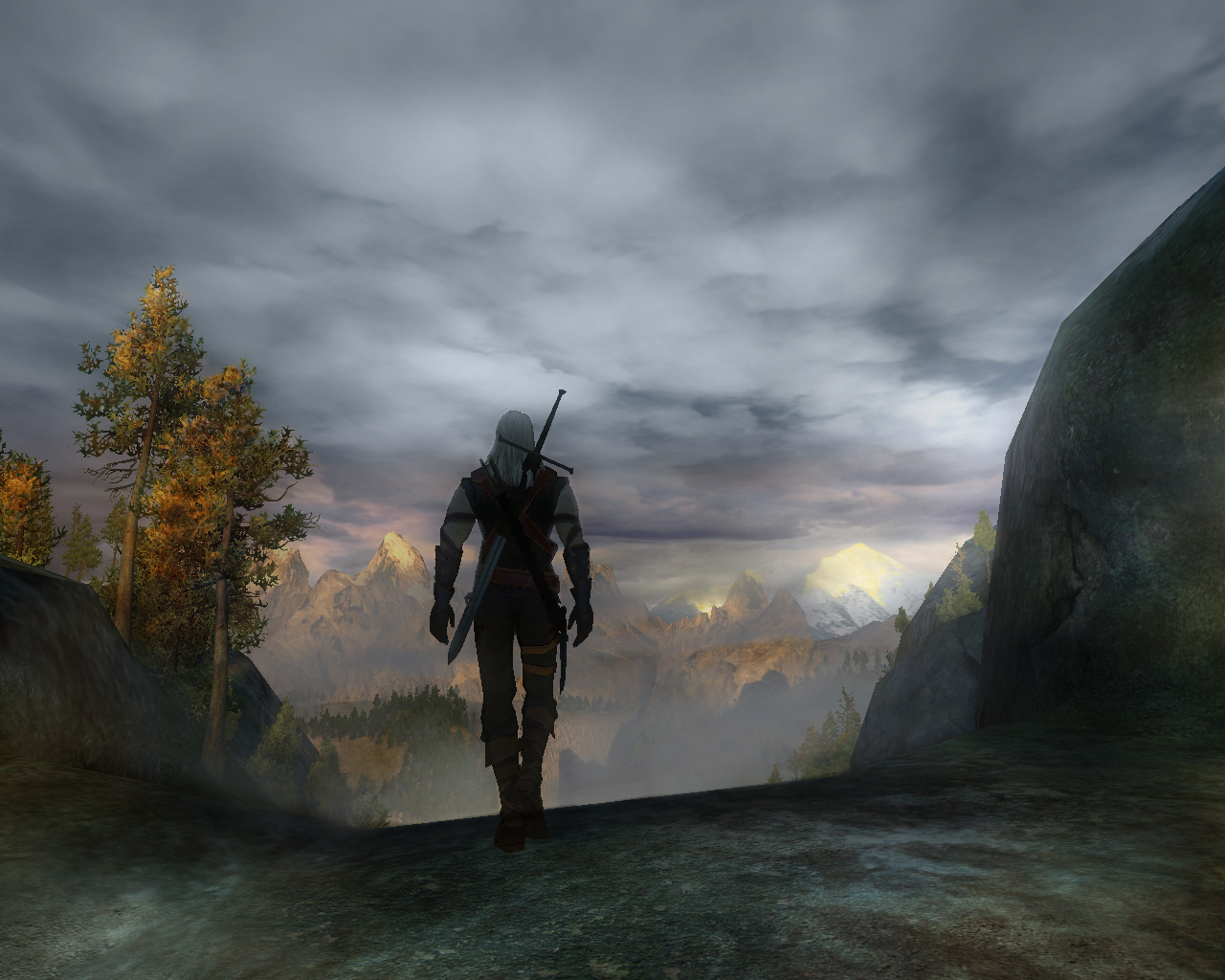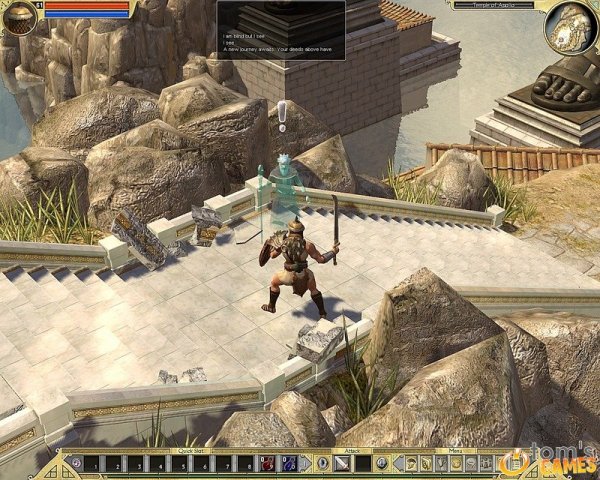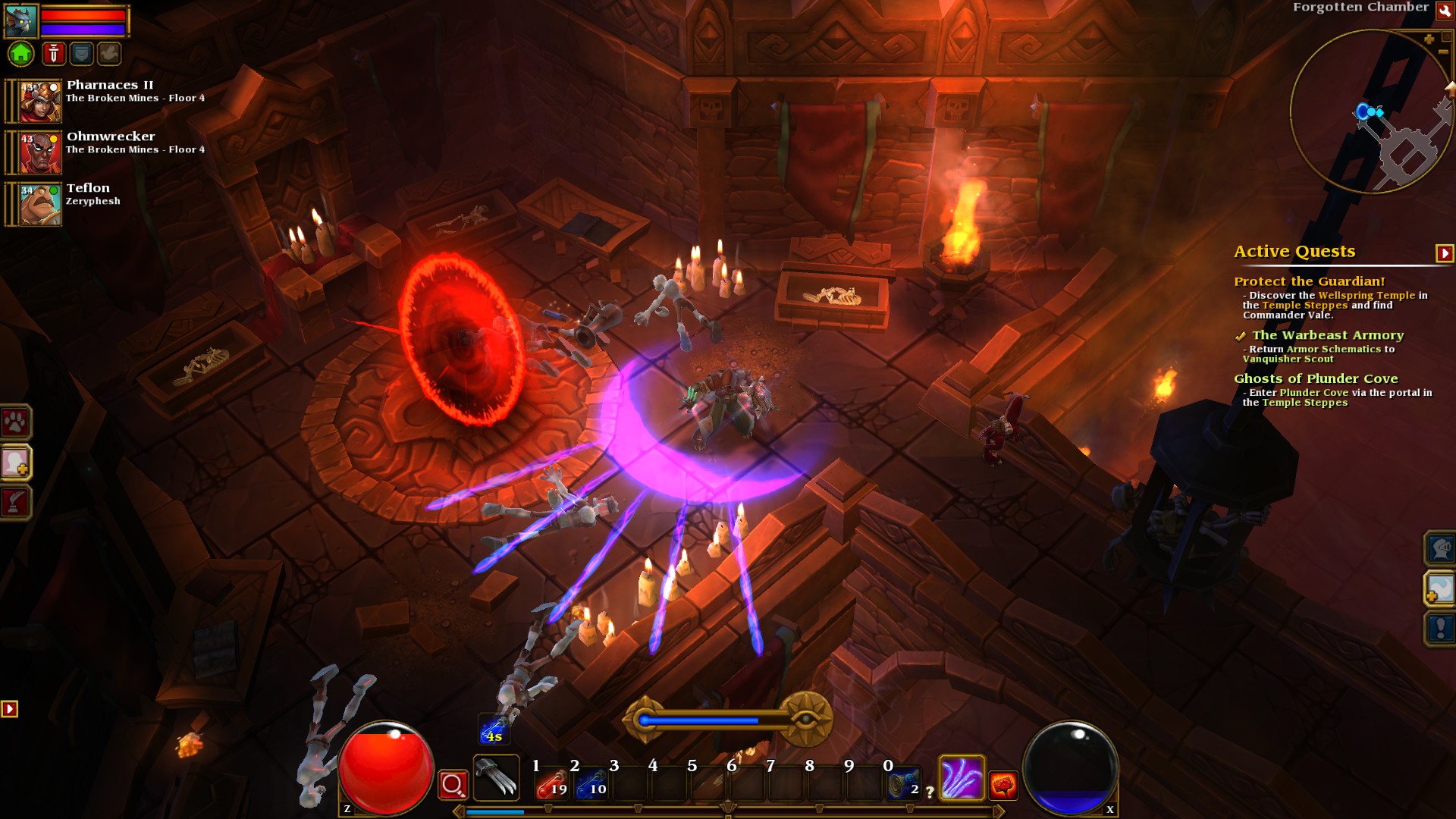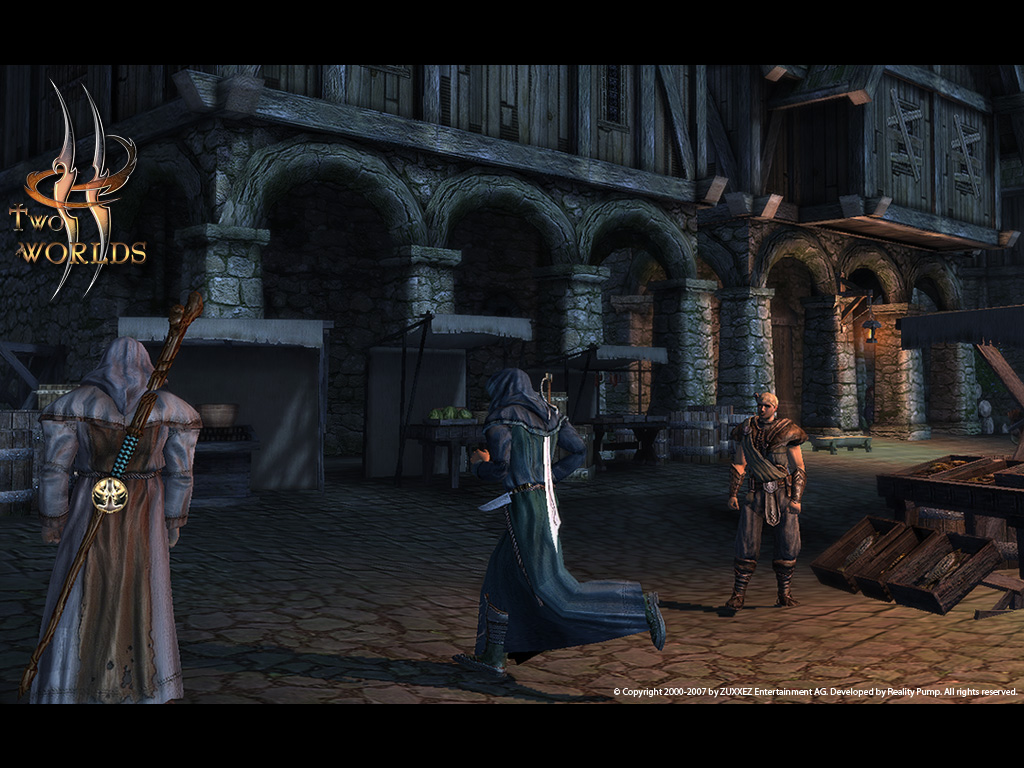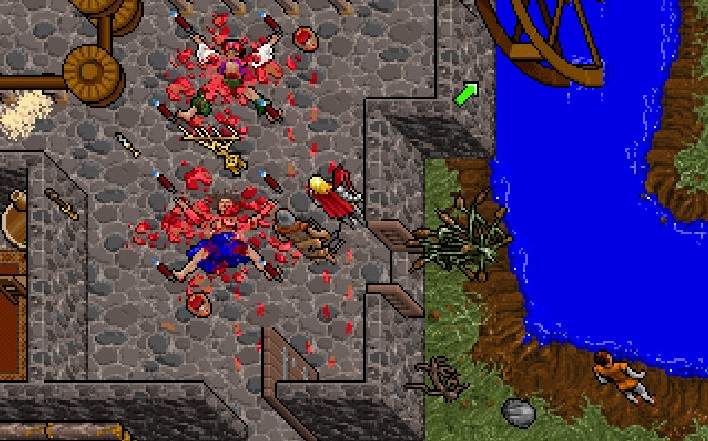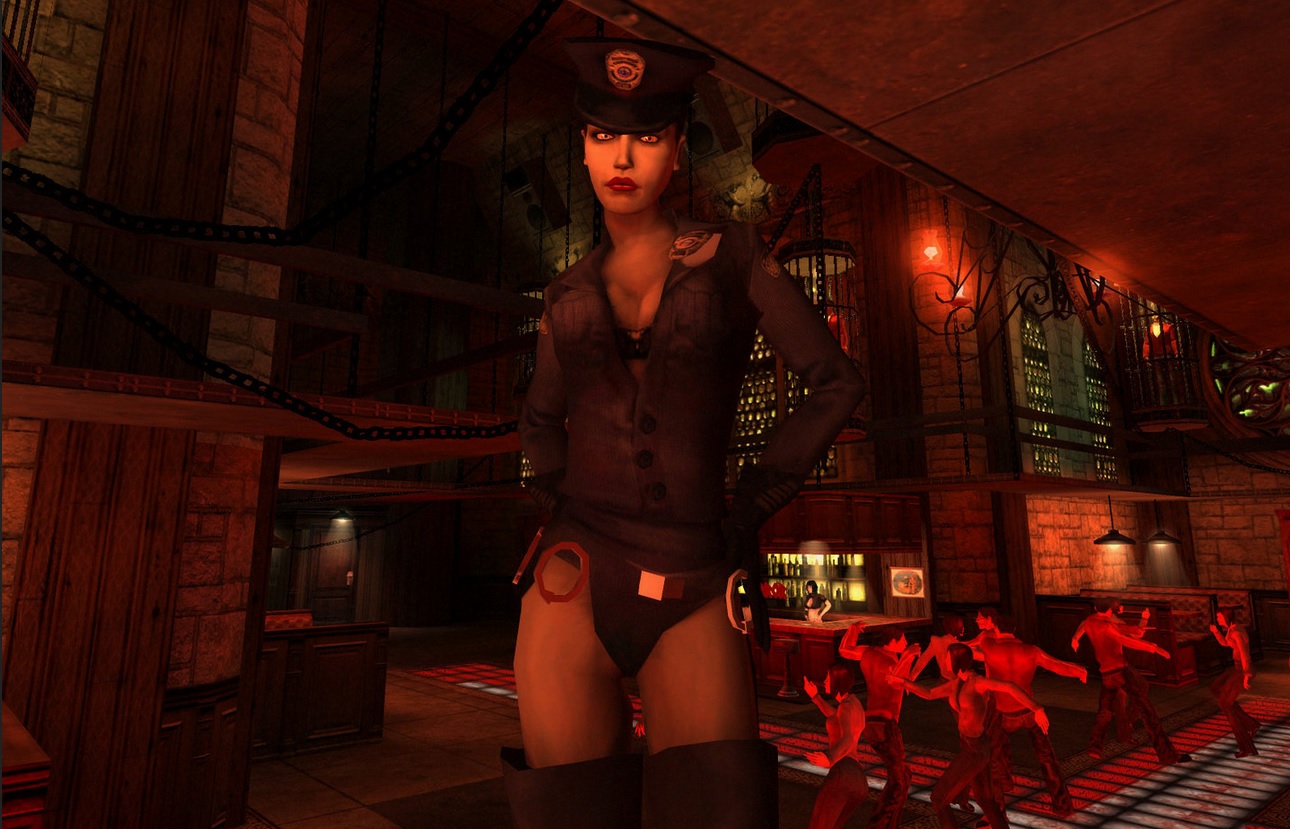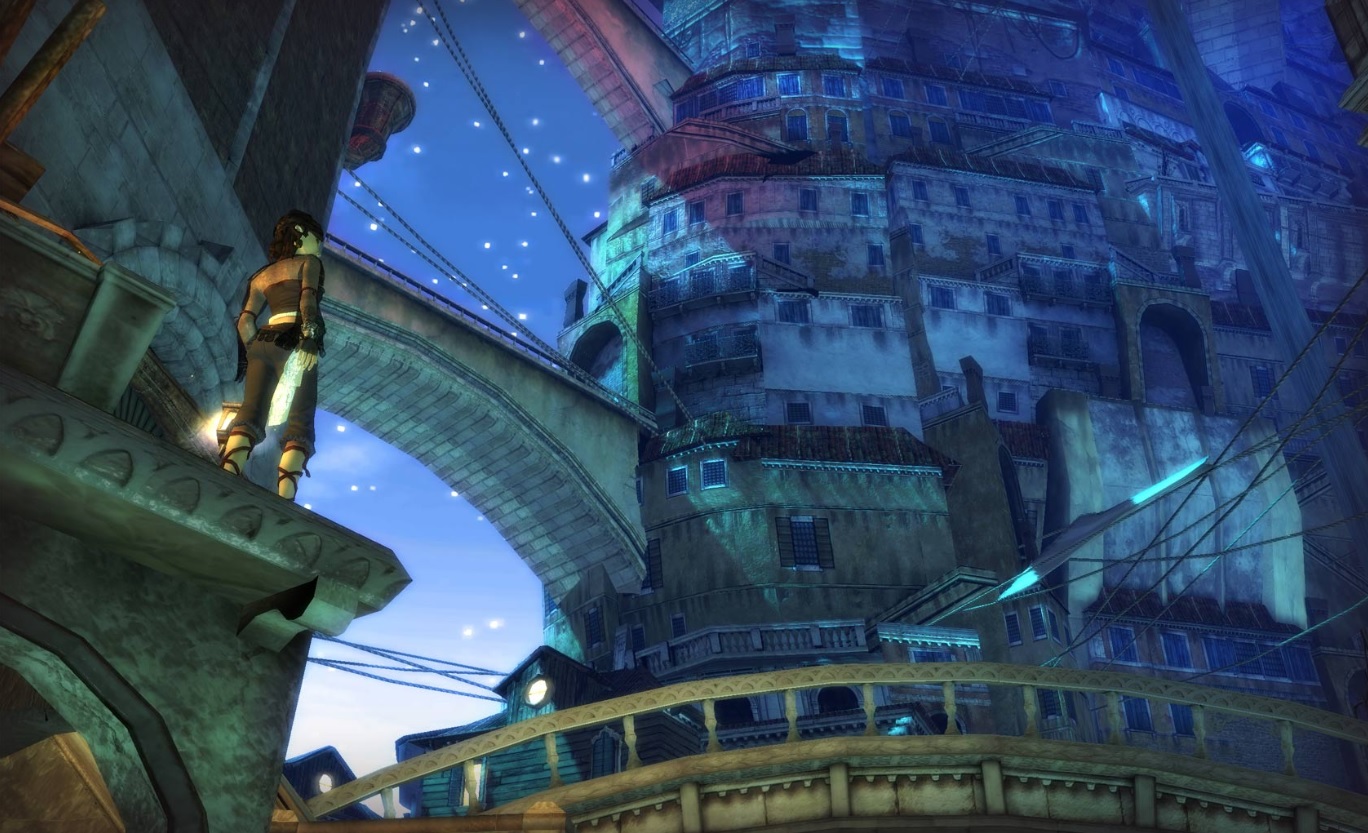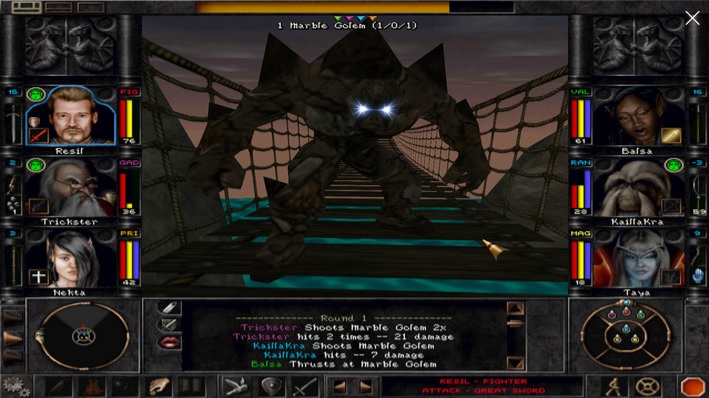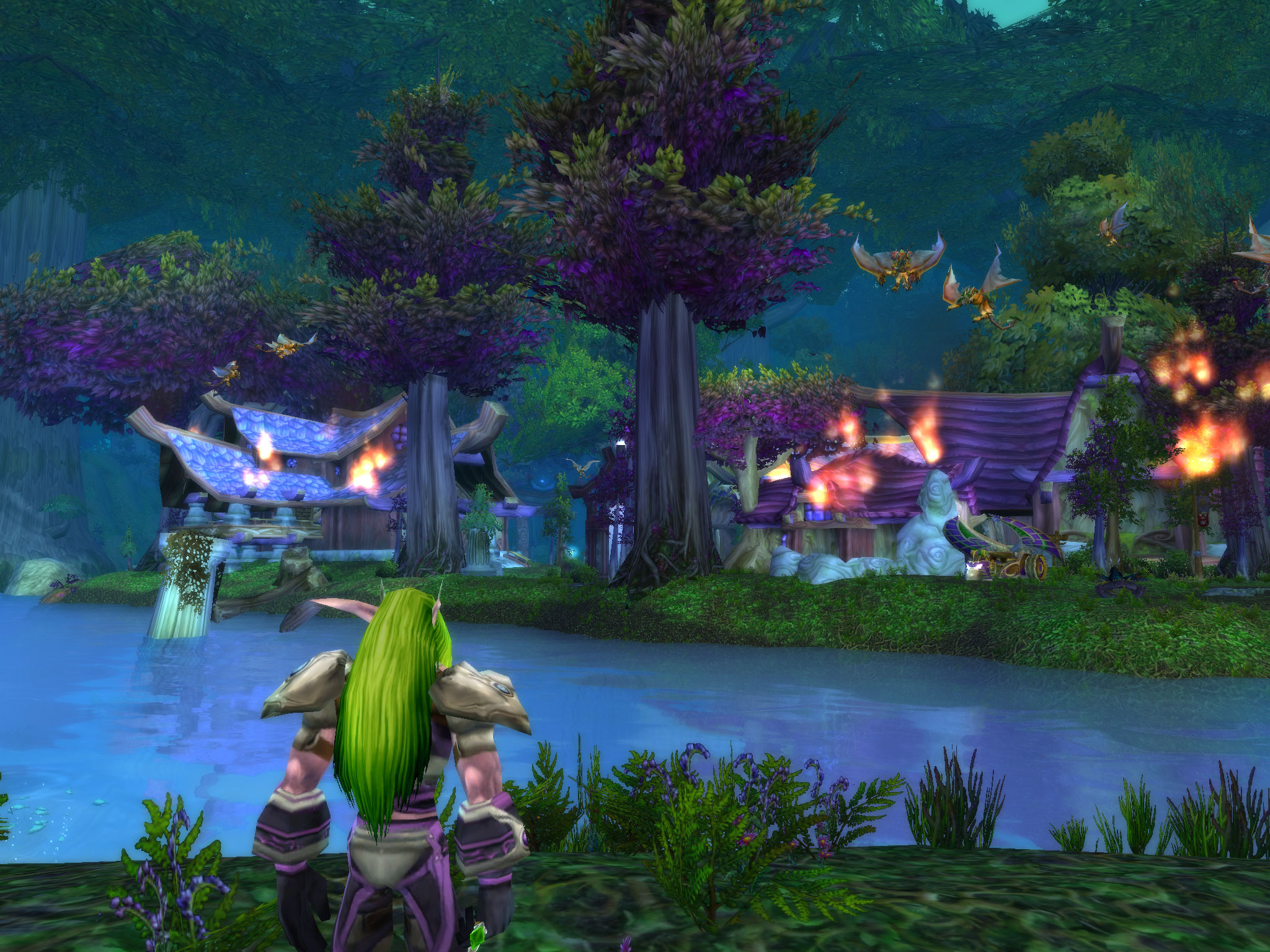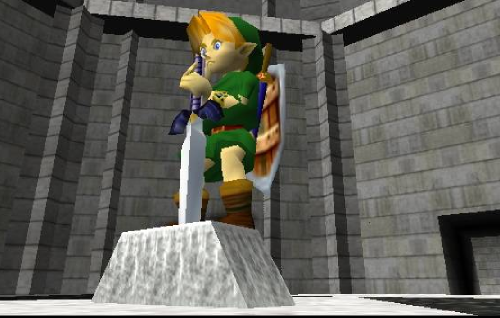In Pictures: Tom's Top 50 RPGs
Today we take a journey spanning 40 years of role-playing games (RPGs). Exciting examples range from classics like the Ultima series to the modern blockbuster Skyrim. Old or new, the following 50 games left their mark on the genre.
The Witcher (2007), The Witcher 2: Assassins Of Kings (2011)
The Witcher games are based on the novels about the witcher Geralt of Rivia by the Polish author Andrzej Sapkowski. They feature an atmosphere similar to the books they are based on, which is to say that they are set in a mature setting filled with racism, violence and death. It includes cursing, drinking and visiting prostitutes.
The witcher Geralt specializes in killing monsters, and is drawn into politics and the machinations of dark powers by unforeseen circumstances. The games’ highlights include an intelligent story, memorable characters and a rough game world.
The second installment put even more of an emphasis on politics than the first. The third part, due out on May 19, 2015, is supposed to focus more on Geralt himself.
Titan Quest (2006)
Titan Quest is essentially what you get when combining Diablo with ancient mythology. The game’s strength was the typical Diablo-style flow based on the usual “hunting and gathering.”
The different areas, from Greece, to Egypt and all the way to China, were well-done too. Unfortunately, the main story was fairly bland. This is too bad, and certainly a missed opportunity, especially since there’s not exactly a scarcity of great source material written by Homer and others.
In the end, the game was good for some entertaining hack-and-slash action, but that was about it.
Torchlight (2009), Torchlight II (2012)
In 2009, the former makers of Diablo banded together, founded the game studio Runic Games and developed Torchlight, an old-school hack-and-slash RPG. They did a great job, too.
Get Tom's Hardware's best news and in-depth reviews, straight to your inbox.
Just like Diablo, Torchlight could keep players engaged for many hours with its basic “hunting and gathering” premise. The second part, which was published in 2012, developed and emphasized its predecessor’s strengths even more and managed to essentially be the “better Diablo III” for many players.
Two Worlds (2007), Two Worlds II (2010)
The polish developer Reality Pump tried to follow the competition with its large and open fantasy game world. The environment was certainly huge, but, unfortunately, also pretty generic.
The second part did a lot better when it came to the main storyline and design, resulting in a solid RPG. One particularly fun aspect of it was the crafting system, which allowed any object to be taken apart to create new things or improve old ones.
In the German release, the voice acting was another high point. For instance, the game’s hero was voiced by the same guy who gives Adam Sandler his voice when his movies come to German screens.
Ultima I – IX (1980 – 1999)
Any RPG best-of list has to include the Ultima series. The first games in the line-up are some of the first RPGs ever. The seventh installment was one of the series’ highlights. It was so large that it was published in two parts.
Ultima’s exceptional element was its detailed and well-thought-out fantasy world. Moreover, you needed to take heed of the journey's moral aspects and decisions. All eight virtues had to be observed to become the shining hero.
In addition to the nine main games, there were plenty of spinoffs. The two most notable are Ultima Online and Ultima Underworld.
Vampire: The Masquerade – Redemption (2000), Vampire: The Masquerade – Bloodlines (2004)
The Vampire: The Masquerade games are based on the paper-and-pencil RPG system of the same name. Many gamers feel that the second installment is one of the best RPGs ever created.
In the first game, Redemption, the player assumes the role of Christof Romuald. The story takes place in both the 12th century and modern times. The second part of the series, Bloodlines, is set in modern Los Angeles, where the player is a follower of a vampire clan. The dark atmosphere and thrilling story were unmatched at the time.
Unfortunately, Vampire: The Masquerade – Bloodlines’ success was hampered by the many bugs present upon its release. Only a large number of fan efforts made the game into the masterpiece that it should have been from the start.
Venetica (2009)
Unfortunately, Venetica is not very well known. This is too bad, as it offers the opportunity to visit a breathtaking fantasy version of Venice.
Scarlett, the game’s heroine, is a cute and relatable protagonist who also happens to be the daughter of death itself. Due to this, she can travel between the worlds of the living and the dead, resulting in noticeable consequences for the game. This ability is sometimes necessary to solve puzzles or win fights. This game is a real hidden gem!
Wizardry I - VIII (1981 – 2001)
The Wizardry series is also part of the RPG genre's bedrock. The first part came out in 1981 for the Apple II and included the exploration of 3D dungeons and round-based combat against enemies.
The fourth installment, published in 1987, is considered by many to be one of the hardest games ever made. 2001 saw the eighth, and, at least for now, last part of the series.
World Of Warcraft (2005)
World of Warcraft is the game that will forever divide MMORPGs into those that came before and those that came after.
Love it or hate it, World of Warcraft is the masterpiece that took the MMORPG phenomenon mainstream. Featuring an exemplary and intuitive UI, a gigantic and well-designed game world and a massive number of available diversions, World of Warcraft makes for an almost perfect game that started the MMORPG gold rush.
The story of WoW is far from over. Its fifth expansion, Warlords of Draenor, came out last November.
Zelda 1 – 17 (1986 – 2013)
The Zelda series is one of the most successful in history: altogether, more than 60 million copies have been sold.
Most of the games feature the very same plot. You assume the role of Link, who proceeds to fight evil in the world of Hyrule and save princess Zelda from the claws of the villain Ganondorf.
By now, the series spans 17 official main titles and numerous spinoffs. Its cult status is so strong that many other games include Easter eggs with references to the Zelda series.
So here we are. These were our 50 role-playing games that truly wrote history. Don’t get us wrong, though – this list is not meant to be complete by any stretch of the imagination. We’re actually pretty sure that there’s a few RPG gems out there that we’ve missed. What do you think should be included? We’re looking forward to more nominations!
-
babernet_1 Please don't use this format. I can only jump from the first to the second picture then it locks up.Reply
EDIT
Okay, it was addblock plus. I disabled it for this site and now the presentation works.
Very clever, Toms Hardware.
-
zero messiah "The most notable titles are Final Fantasy VII and Final Fantasy IX. The former was the first game in the series to feature 3D graphics and sold approximately 10 million copies worldwide. The latter was the first MMORPG in the series, which is now being continued with Final Fantasy XIV."Reply
Final fantasy IX is for Playstation 1 and is not an mmorpg. FF 11 is the first mmo for the series, and if you want to talk about the most notable, FF 7 and 6 are.
-
synphul I agree, ff6 and 7 were pretty notable. The ff series came a long way since the first one on the nes. Loved that game, got me hooked. They had a few mediocre titles but most of them were pretty good.Reply -
Super_Nova It's a real shame that The Phantasy Star series was left out. I also miss Shining Force in the list.Reply -
bit_user Reply
Maybe upgrade your browser, or at least use a HTML 5 compliant browser for this site? It doesn't seem fair that sites should have to cater to the lowest common denominator, like it's 1999 or something.15347117 said:Please don't use this format. I can only jump from the first to the second picture then it locks up.
-
bit_user Reply
That's the problem with these articles. A few people will always be upset that some of their favorite games got left out.15347603 said:It's a real shame that The Phantasy Star series was left out. I also miss Shining Force in the list.
I actually wonder how much of that is due to games that perhaps weren't that great, but the person either hasn't played a wide variety or maybe it was just during their younger years so it made a greater impression on them than it would now. I'm not saying that applies to either of the titles you mentioned, since I haven't played them.
It does seem a bit odd how various different subgenres were combined into a single list. Such as turn-based, realtime, and MMORPGs. I wonder if some of these titles mightn't have even qualified as adventure games.
-
nukemaster Reply
I highly doubt they are using a browser that can not support the site.15348011 said:
Maybe upgrade your browser, or at least use a HTML 5 compliant browser for this site? It doesn't seem fair that sites should have to cater to the lowest common denominator, like it's 1999 or something.15347117 said:Please don't use this format. I can only jump from the first to the second picture then it locks up.
It is more likely they have Adblock or another plugin/addon installed that is messing with the page(I would also guess firefox as the web browser). It does have some negative side effects because the assets for the site can be hosted on various servers.
If the lowest common demonstrator was not main factor in webpages we would not be back to the 90's with animated gif's being more popular than videos online because cell phones/tablets do not always work with video sharing sites(flash limit, not that FLV playback would have caused any of these battery issues users claimed). An mp4 video actually takes less space than these gifs at the same frame rate and resolution(all without the 8-bit color limitation).
